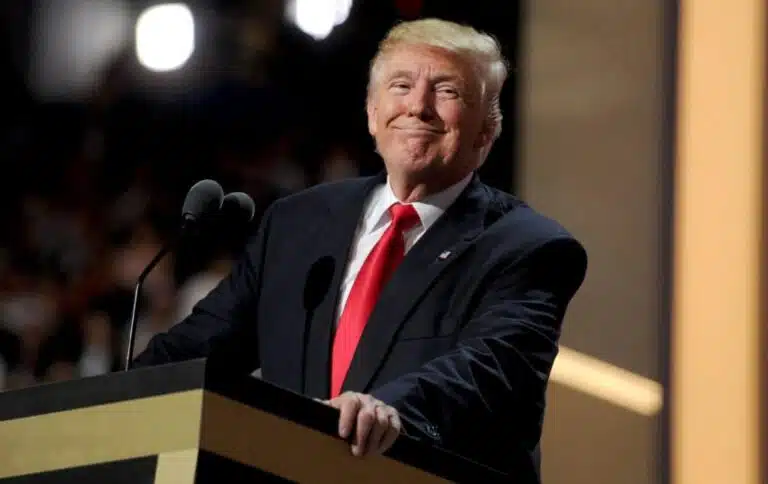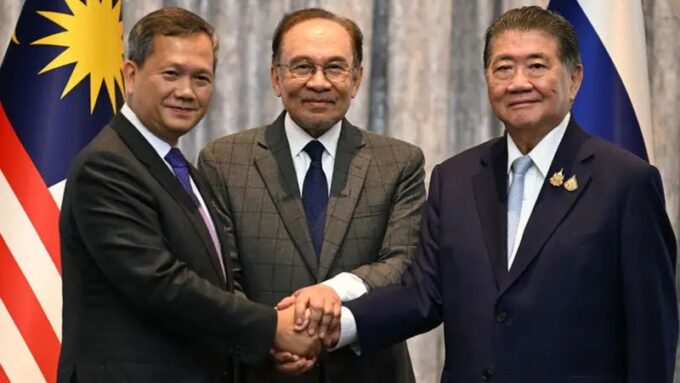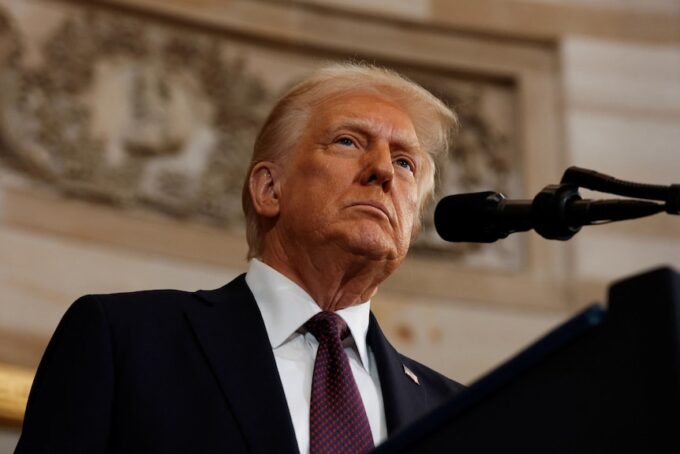News | Events | Digital PR | Advertising
United States President-elect Donald Trump has outlined an ambitious and controversial plan for his upcoming term, targeting LGBTQ policies, foreign relations, and American infrastructure. Speaking at the AmericaFest conference in Phoenix, Arizona, on Sunday, Trump pledged to “Stop the transgender lunacy” on his first day in office.
The announcement signals a shift against LGBTQ rights as Republicans prepare to take control of the White House and Congress. Trump vowed to issue executive orders to ban transgender individuals from serving in the military, remove transgender topics from schools, prohibit gender-affirming medical treatments for minors, and “keep men out of women’s sports.” He also stated that the federal government would officially recognize only two genders, male and female.
Trump criticized the Biden administration’s policies, describing the past four years as bleak and promising a “new era of peace, prosperity, and national greatness” starting on January 20, 2025. He reiterated plans to end the war in Ukraine, stabilize the Middle East, and prevent World War III, though he did not provide specific strategies for achieving these goals.
In an unexpected move, Trump reignited debate over the Panama Canal, accusing Panama of treating the U.S. unfairly in its operation of the vital waterway. He labeled current canal usage fees as “ridiculous” and suggested demanding its return to full U.S. control if the terms of the 1977 Panama Canal Treaty were not respected. Trump did not clarify whether his remarks were rhetorical or a signal of concrete policy intentions.
The speech comes as U.S. politics grow increasingly divided on issues like transgender rights, with states pursuing sharply opposing policies. It also follows Congress’s passage of a defense budget blocking funding for certain gender-affirming care for the children of service members.
As Trump prepares to take office, his agenda sets a combative tone, blending controversial domestic policies with international challenges that could reshape governance and foreign relations.
Explore more
Scientists Research Nigeria’s Okra, Maize, Four Other Crops During NASA’s Space Mission
International astronauts will research six indigenous Nigerian crops and seeds during the...
President Trump Orders Pharmaceutical Companies To Cut Drug Prices Within 60 Days
President Donald Trump on Thursday said he asked major pharmaceutical companies to...
Microsoft To Become The Next $4 Trillion Company
Microsoft (MSFT.O), opens new tab soared past $4 trillion in market valuation...
Importers Slash Petrol Prices Below Dangote Rates Amid Rising Market Competition
Competition has hit Nigeria’s petroleum sector as fuel importers slash petrol prices...













Leave a comment